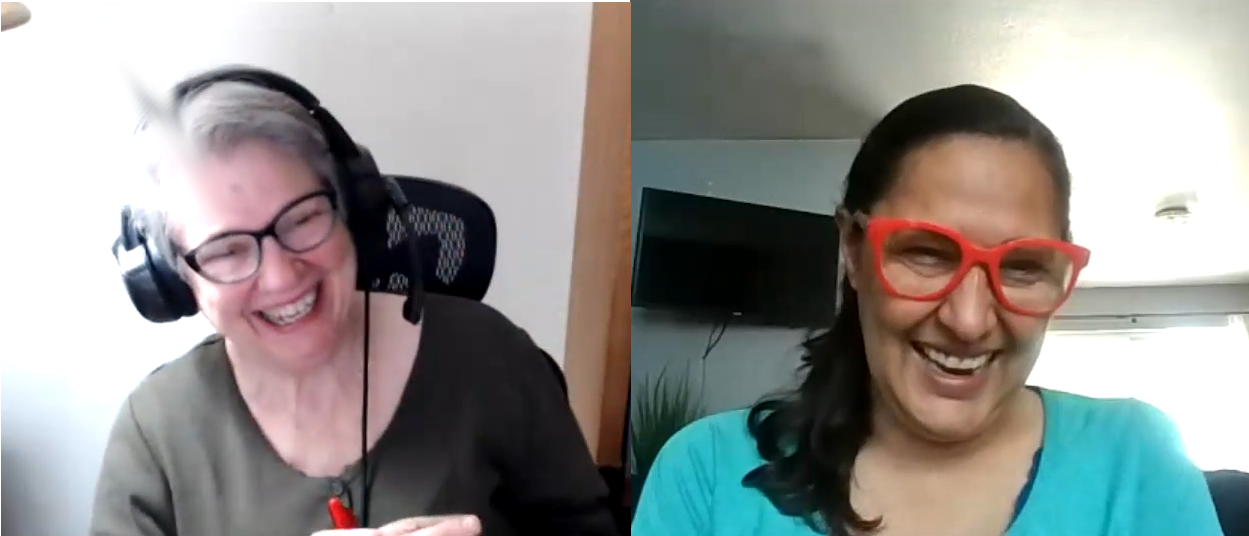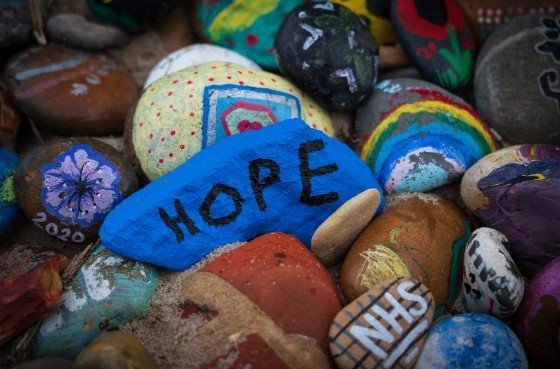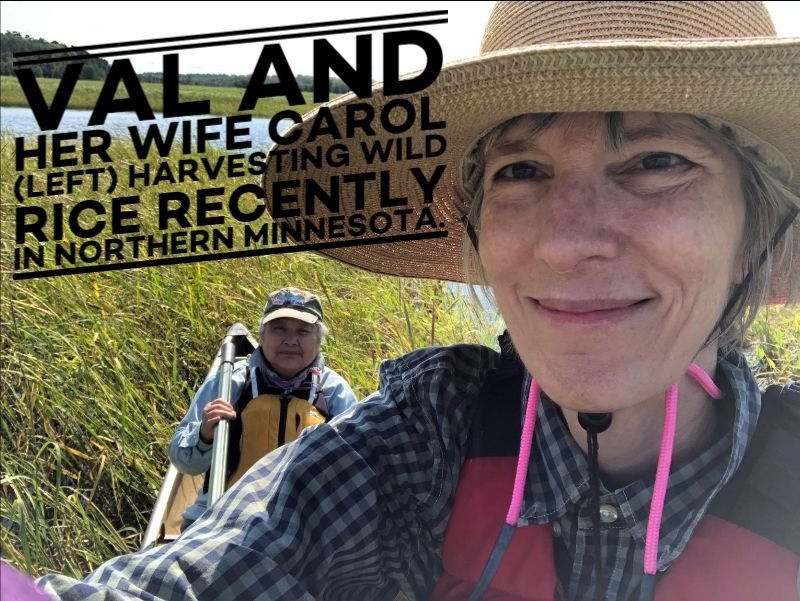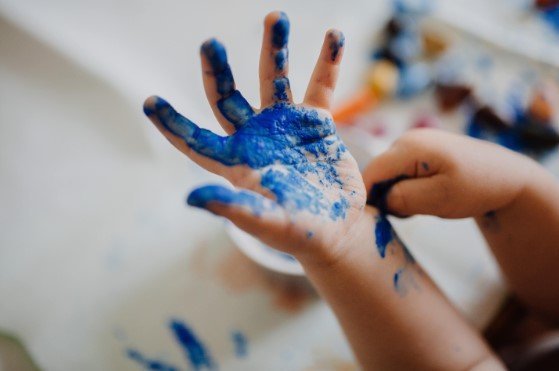
News + Information
Subscribe to stay on top of the latest news, interviews and information from the Sierra-Cascades Yearly Meeting of Friends and the wider Quaker community.
We welcome submissions, particularly from Sierra-Cascades YM members and other Friends. Click here to read our queries for contributors. If you would like to have something considered for the newsletter, please email newsletter@scymf.org.
Scroll down to read interviews and lead articles from past issues. Please note that views expressed in the interviews do not necessarily reflect the views of Sierra-Cascades Yearly Meeting of Friends as an organization.
“Valiant for the Truth” in times like these
Judy Maurer writes that “we, as the Society of Friends, have been in times like these before. Indeed, Quakerism was forged in times like these.”
A Conversation with Joel Jackson
Joel Jackson has served on the tribal council of the Organized Village of Kake, Alaska, for thirty years. The village itself is both a Tlingit tribe and a municipality.
A Conversation with Darren Kenworthy: A Gift of Grace
Darren Kenworthy was our annual sessions Friend in Residence in June, 2024. Here’s my interview with him on April 8, 2024
A Conversation with Jamiann S’eiltin Hasselquist
I interviewed Jamiann (Tlingit, Deisheetaan Clan, Raven's Bones House) on June 8, 2023. I was deeply moved.
Jamiann was one of the plenary speakers at the Sierra-Cascades annual sessions on June 23, 2023. She is president of Alaska Native Sisterhood Camp 2 in Juneau. Camp means a local chapter of the Alaska Native Sisterhood. The Alaska Native Sisterhood/Brotherhood is the oldest known indigenous civil rights and cultural organization, founded in 1912. “S’eiltin” is her first name in Tlingit.
A Conversation with Jan Bronson
It isn’t often that I meet someone who understands the town I grew up in as well as Jan Bronson does, even though hers was along an inlet in Alaska and mine was in a valley in Arizona. Jan is a former clerk of Alaska Friends Conference and is now co-clerk of Alaskan Quakers Seeking Right Relationship with Indigenous People.
Part of the conversation is the two of us trying to process the racism we witnessed as children. It weighs on us still, although we were witnesses rather than targets. The trauma we experienced was secondary.
This is a conversation between two rather privileged white women on racism against Native people in the US. The most important conversation in the yearly meeting about racism and healing is not this one. One is on Saturday evening at annual sessions, when three Alaska Natives will tell their stories. It will be on Zoom and in person. Reserve a place for yourself here, to attend online or in person.
I offer this as an interview partly because I find the experiences she describes of healing and transformation with the First Alaskans Institute fascinating. It’s a story of both pain and healing.
A Conversation with Gil George | Part 1
Gil grew up among refugees fleeing genocide and civil war. His parents had bought a rundown mansion on the far edge of New York City to welcome refugees. He lived between two housing projects, so the neighborhood school had its own wars.
In this interview he talks about "the trauma of belonging" these refugees faced. He points out that some people's sense of belonging may be fragile, and the undertones of what is said can be more painful. With help from Walter Brueggemann's Spirituality of the Psalms, he takes what he learned from his experiences, and applies it to Sierra-Cascades.
Gil is a member of West Hills Friends. This is Part I of the interview.
A Conversation With Gil George | Part 2
In the first part of my interview with Gil, he spoke tenderly about people he grew up with who have a fragile sense of belonging. They were refugees from civil wars and genocide, and Gil's parents gave them a place to begin their lives in the US. They did not often speak of their experiences. Deeply traumatized, they spoke in codes or undertones. Their humanity had been rejected in their homelands, and so were alert to the undertones of what others were saying.
Gil is operations manager for Friends World Committee for Consultation. He's a member of West Hills Friends.
A Conversation with Adria (Gulizia) DiCapua | Part 2
In Part 1 of my interview with Adria, we have a tender conversation about spiritual wounding and healing in faith communities. It continues here in the second half. It’s a topic that is close to my heart. Yet my favorite part of this second half is when she tells her story about male friendships. It’s why she does not want to let go of referring to God as “he.” We also talk about remorse, grace, and forgiveness.
Adria is a lawyer with a heart for mediation. She's on the Board of Advisors for the Earlham School of Religion and is a member of Friends of Jesus Fellowship founded by Micah Bales, Faith Kelley, and others. She's also a compassionate voice of prophecy within the Quaker movement.
A Conversation with Adria (Gulizia) DiCapua | Part 1
In her blog post, Adria describes “the fierce grip that White supremacy has on our national psyche and the real-world impact that it has on the lives of people of color.”
She sees that chokehold in profoundly spiritual terms. She described racism “as a malevolent spirit haunting our land." The Lamb's War is what early Friends called the fight against evil to which Christ called his followers. Adria writes that “Fighting racism is a non-negotiable aspect of the Lamb’s War.”
So I began with a question about the connection.
Why Grief Calls My Name at Christmas Time
I grew up in a one-church, two-bar town, in the first set of mountains north of Phoenix. It was a quirky little town. It was a mystery to me why my classmates’ dads could fix cars and lay concrete floors, but my dad could only read ancient Greek and Hebrew. He was the pastor in that one church, and for a while had been a regular denizen of one of those bars…
Just before Christmas, out where huge boulders had tumbled down the mountainside eons ago, I’d huddle next to my best friend, always in the children’s choir. I'd see my dad’s profile in the candlelight near a palo verde tree, rocking slightly on his feet. Then his booming liturgical voice would say, “And the angel said unto her, ‘Fear not, Mary: for thou hast found favor with God.” It was the town’s annual Christmas pageant.
Meet Anna Scott-Hinkle
But again, this is part of an issue that I have with some kinds of Christianity. I feel like the message of Jesus has been greatly perverted to save empire and save, you know, the capitalist system. I`m pretty sure of that, based on what Jesus said about bringing freedom to captives and releasing the oppressed. I'm like, Well, if the system is oppressive and people are supporting it, then obviously, they're complicit.
Ron Mock: conflict, hope, and God's love for us
People come to mediators because they haven’t been able to resolve their disputes on their own. They often are in despair that their disputes can ever be resolved. Mediators have to bring hope. The mediation process itself is a reason to have hope, but some mediations go through stretches where even the mediators get discouraged. How could I help my mediators keep hoping when the mediation seems to be going nowhere?
In an interview for this newsletter, Julie Peyton describes her spiritual journey as coming alive when she abandoned a theology and let her experience draw her ultimately to Jesus. But I think for me it may have gone the other way: from theology to experience.
I tell my trainees that I ground my hope for each mediation in my faith in a loving, omnipotent God. This is a theological faith, expressed in a lawyer-friendly syllogism:
If God is omnipotent, then (at least) anything God wants is possible.
If God is loving, and loves all of us, then God must want all of us to (at least) have means to meet our needs.
Therefore, there always has to be a way for both sides in the bitterest mediation to find means to meet their needs.
Maybe not their wants, especially not their desires for revenge, but their needs are always within reach.
'A Month of Sundays' with Derek Lamson
Derek Lamson texted me that his new graphic novel, Mark V "is a little magic realism; it's a series of related shaggy dog stories; it's a memoir; it’s a bit of a love-letter to Eugene; and in three or four different bits it’s Mark 5:1-20."
Intrigued, I asked to interview him about the novel and his new album, A Month of Sundays. Here's our conversation, lightly edited.
From the Henhouse to Camas Friends
When I was seven years old, a farmer who lived near our family home saw how much I loved chickens and gave me a cockerel—that’s a baby rooster—for a pet one summer. I named him Blackberry. We spent the days playing outside, often with Blackberry perched upon my head. Blackberry had glossy green-black feathers and beautiful eyes, and he taught me about how to communicate with chickens.
Before that summer I had begun lessons in chicken communication through spending time in my grandmother’s henhouse. If I sat quietly with the chickens, squatting between the nest boxes and the roosts, I could begin to feel part of the web of communication and energy within the flock. I watched the chickens relate to each other, and I listened to and sometimes mimicked their vocalizations.
Decades later, when I first began attending Quaker meetings, I thought about the lessons I learned from chickens. As about seven or eight of us gathered on Wednesday evenings for unprogrammed worship, I practiced feeling the same web of connection I had experienced in the henhouse.
And now, a few more decades after that first encounter with Friends, I’m thinking again about the chicken coop and the lessons I’m learning from Camas Friends.
A Conversation with Kendra Purcell: Remembering Bernie Bosnjak
Our conversation begins with Bernie’s “four besties,” as she called them, and their trip to San Francisco for three days last July to spread Bernie’s ashes. I’ve edited it lightly for brevity and clarity, and changed the names of the homeless people they served. - Judy
Safeguarding Our Children
Sierra-Cascades has a new child protection policy, approved in annual sessions 2022 for every member meeting. The target implementation date is October 29th - fall quarterly gathering.
A Quaker Human-Scale Development Program Finds New Partners in Latin America
Right Sharing of World Resources will begin serving women’s groups in Central America, beginning by providing small seed loans to women in Chiquimula, Guatemala. They will partner with a cooperative there, giving Right Sharing a source of local leadership and experience, an established network, and lower administrative costs.




















